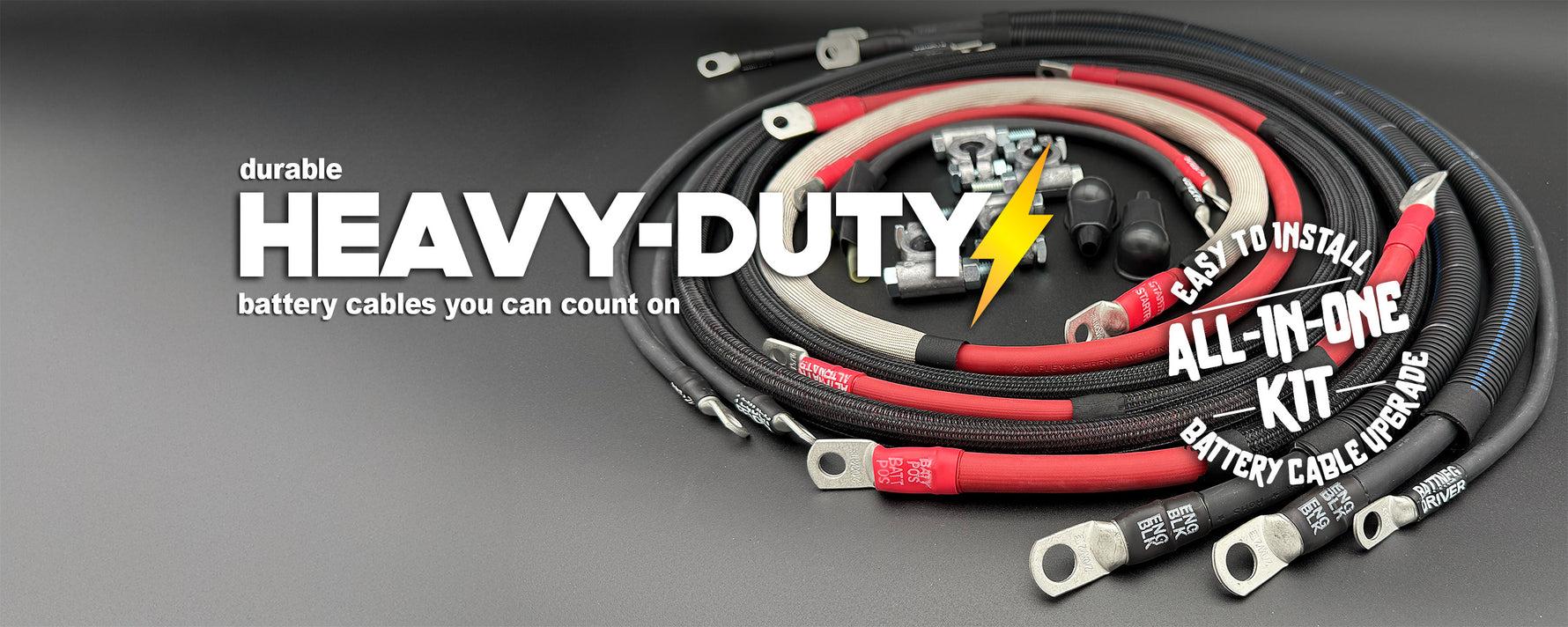A Battery Cable is one of the most important components in a vehicle’s electrical system. It connects the battery to the starter, alternator, and other electrical accessories, ensuring that the engine receives enough current to start and the electronics receive stable voltage. Even though it appears to be a simple heavy-duty wire, the Battery Cable plays a major role in engine reliability and electrical efficiency. A weak or damaged cable can lead to starting issues, flickering lights, unstable voltage, and long-term battery damage. For drivers who want better performance, smooth starts, and complete electrical safety, upgrading the Battery Cable is a smart decision.
How a Battery Cable Works in the Electrical System
Every vehicle uses two main battery cables. The positive Battery Cable delivers power from the battery to the starter and the main fuse box. The negative Battery Cable, also known as the ground cable, connects the battery to the chassis or engine block to complete the electrical circuit. If either cable becomes worn or undersized, the flow of current becomes weak and the electrical system fails to perform properly. The engine may struggle to start, accessories may lose power, and voltage fluctuations may occur. This is why choosing the right Battery Cable is critical for trouble-free vehicle usage.
Signs That Your Battery Cable Needs Replacement
A failing Battery Cable shows several noticeable symptoms. Slow cranking, difficulty starting, or repeated clicking sounds during ignition indicate that the cable is not delivering enough current to the starter. Dimming headlights or inconsistent dashboard lights suggest voltage drops caused by high resistance in the cable. Corrosion around the battery terminals or signs of melting insulation are also warnings that the cable is no longer safe. If these symptoms appear, replacing the Battery Cable immediately prevents long-term damage to the electrical and ignition system.
Why Upgrading to a High-Quality Battery Cable Improves Performance
Factory battery cables are often thinner and not designed to handle high current levels, especially in vehicles that have upgraded electrical systems. High-quality Battery Cables provide better conductivity and allow the maximum amount of current to flow without restriction. The result is faster engine starts, improved voltage stability, stronger performance in cold weather, and enhanced reliability for accessories such as amplifiers, winches, lighting, and upgraded alternators. Upgrading the Battery Cable is also beneficial for heavy-duty trucks, off-road vehicles, marine systems, campers, and vehicles with high-power audio systems. A premium cable protects the battery, ensures stable voltage delivery, and increases the lifespan of all connected components.
Choosing the Best Battery Cable for Your Vehicle
When selecting a Battery Cable, several factors should be considered. The gauge size determines how much current the cable can carry. Thicker cable sizes such as 0 gauge, 2 gauge, and 4 gauge are common choices for performance and heavy-duty applications. The material of the cable is equally important. Oxygen-free copper provides maximum conductivity and reduces voltage drop, making it ideal for high-current flow. Heat-resistant insulation offers extra safety by preventing overheating and short circuits. Flexible wire construction also helps in routing the cable easily through the engine bay and protects it from vibration damage. For reliable options that meet all these requirements, https://www.big7kits.com/ offers high-performance Battery Cables suitable for every vehicle type and electrical demand.
The Importance of Battery Cables for Audio, Off-Road, and Performance Builds
Vehicles equipped with powerful audio systems, lighting kits, upgraded alternators, or off-road winches require significantly more current than factory battery cables can support. Without a strong Battery Cable, voltage drops become common and performance decreases. A high-quality Battery Cable ensures that amplifiers receive full power, lights remain bright, high-output charging systems perform properly, and winches operate safely under stress. For custom builds, replacing the stock cable is not just a small upgrade — it is a necessary foundation for stable electrical performance.
Final Thoughts on Upgrading a Battery Cable
A Battery Cable may appear simple, but it directly affects the starting power, voltage supply, and long-term reliability of the entire electrical system. If the cable cannot handle the current, every connected component suffers. Upgrading to a premium cable is one of the most effective and affordable improvements for better ignition response, performance consistency, and electrical safety. Drivers who want smoother operation, strong voltage flow, and maximum power delivery can explore high-quality Battery Cable options at https://www.big7kits.com/ where performance-tested and heavy-duty automotive electrical products are available for every need.

